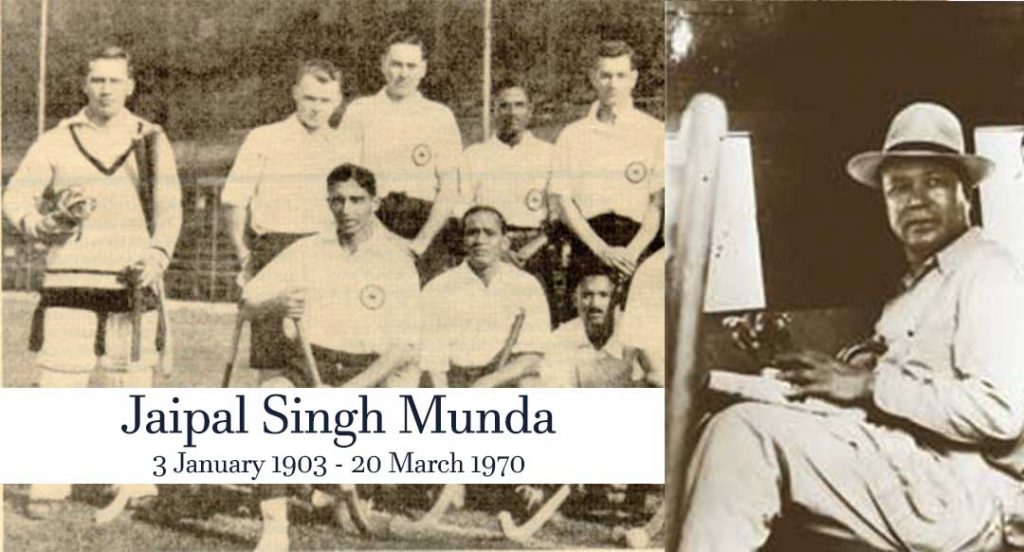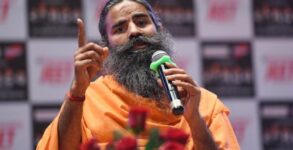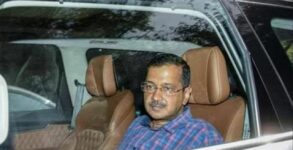Not all tribal leaders get the due credit of their contribution to the Indian independence struggle. Not only were they left out of national discourse but even the steps they made in India’s progress were often excluded from the epics of of our great nation. One such name which usually gets overlooked in the Indian history is that of Jaipal Singh Munda.
Born on 3 January 1903
Three years after Birsa Munda who brought fright to the nerves of the English men lost his life, the tribal heartland of India was gifted with another hero, Jaipal Singh Munda. Similar to Birsa, Jaipal also belonged to the Khunti area of Ranchi and was from the Munda community.
Captains India to first Olympic Gold
The game in which India walked with pride and made the whole world look for inspiration towards it for more than 50 years, kicked initial success with an aid of the very Jaipal’s sacrifice. At an age of just 25 he was well on course to have a comfortable career in bureaucracy but when the opportunity to captain the Indian Hockey team in the 1928 Amsterdam Olympics knocked he agreed. Jaipal did apply for the leave from his bureaucratic training at the India Office, London, but the captain’s application was denied and he was left with a tough decision to make, playing the Olympics would mean he would lose out on his cozy job. Luckily for now India’s most successful Olympic sport, Jaipal chose the sticks.
The 15-men squad for the 1928 Olympics:
Richard Allen, Major Dhyan Chand, Maurice Gateley, William Goodsir-Cullen, Leslie Hammond, Feroze Khan, George Marthins, Rex Norris, Broome Pinniger, Michael Rocque, Frederic Seaman, Ali Shaukat, Jaipal Singh Munda (C), Santosh Manglani, Kher Singh Gill
At the Olympics, India romped all the oppositions, scoring a mammoth 29 goals without letting the puck enter their goal even once. However, Jaipal did not feature in the final after differences in opinion popped between him and the team manager Rossier. Broome led the team to their first Olympic gold medal, beating the home team, Holland, by 3 to nil.
Post Olympic life
Post returning to his home country following the Olympic victory, Munda was asked to continue his ICS training but he denied, as for him his self-esteem was on the line. He went on to join an oil major company instead.
In Calcutta he met Tara Winfred, grand-daughter of Womesh Chunder Bonnerjee who was the indian National Congress’ first President in the inaugural session of 1885. The marriage short-lived.
In 1937, he returned to India after serving various teaching assignments abroad. A year later he came up with Adivasi Mahasabha and demanded carving out of Jharkhand. In the next decade Jaipal would become the loudest voice for tribal rights in the Constituent Assembly. At the house of 296-member Assembly who was in the process of drafting the Indian constitution, Jaipal identified himself as a junglee. Over the meetings he never hesitated to put forward the aspirations of the tribal community in front of the house.
Voice of tribal India at the Constituent Assembly
First words by Jaipal at the Assembly
On 19 December 1946 Jaipal made a thunderous speech when he spoke for the first time in the Constituent Assembly. In his first words Jaipal showed the courage and humbleness he carried. He said, “I rise to speak on behalf of millions of unknown hordes-yet very important–of unrecognised warriors of freedom, the original people of India who have variously been known as backward tribes, primitive tribes, criminal tribes and everything else, Sir, I am proud to be a Jungli, that is the name by which we are known in my part of the country.”
On the issue of Article 13
On 2 December 1948 in the Constituent Assembly debate on the issue of Article 13 of the then draft of the Indian Constitution, he started by saying, “this particular article in no way frightens me, although the various fundamental rights have been hedged in by so many exceptions. To me it is obvious that whatever we put into the Constitution, its value, its use to us will depend upon the way we work all these things. But there are one or two things on which I would like Dr. Ambedkar to enlighten me”.
Pointing 13(1) (b) which in the then draft of the constitution read, “freedom to assembly peaceful and without arms”, he said, “I have to point out that this matter of the Arms Act has been very mischievously applied against the Adibasis. Certain political parties have gone to extremes to point out that because Adibasis carry bows and arrows, lathis or axes, which they do daily as a normal part of their life, which they have done for generations and generations, and what they are doing today they have done before, that they are preparing for trouble.” Strengthening his point with an example the exemplary orator added that their are certain festivals which require the tribals to carry armed weapons and if it was going to be interpreted if they have assembled unpeacefully?, concluding that he see clarification.
Dies on 20 March 1970
The legend took his final breaths succumbing to cerebral hemorrhage at his residence in New Delhi.
A stadium named after him opened in Ranchi in 2013.
Thanks to Jaipal’s efforts, the Indian constitution is embraced with the aspirations of the tribal community. Jaipal was one of the greatest heroes of the 20th centuries of which not much of the world knows about. He was not only a Olympic Gold Medallist, an ICS-exam success, he was more than that, he was the voice the tribal community needed, only sadly this time the historians rolled their eyes away.
Birsa Munda’s and Jaipal Singh Munda’s dream of a separate state Jharkhand became a reality in the year 2000.

















